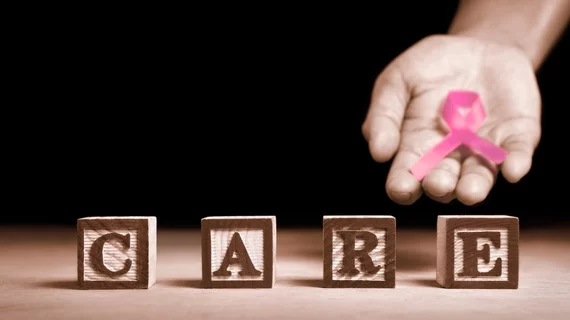Radiology operation loses standing to provide mammography services
The FDA is warning patients and referrers about an imaging business near the nation’s capital that has fumbled away its mammography accreditation.
Laurel Radiology Services in Laurel, Md., which identifies itself as a division of Capitol Radiology LLC, has had a history of problems meeting MQSA standards and ACR image evaluation criteria, according to an FDA safety communication posted June 30.
Separately, in a mammography facility adverse event and action report also released June 30, FDA says it has advised patients of the practice to speak with their healthcare providers as soon as possible.
The report names two individuals as owners or operators of Laurel Radiology Services/Capitol Radiology LLC and bars them as well as the practice from providing mammography services for at least two years.
FDA’s recap of the facility’s protracted unraveling notes that a 2020 MQSA inspection “revealed the facility failed to obtain accreditation of its Full Field Digital Mammography (FFDM) unit from the facility’s accreditation body, the American College of Radiology (ACR), prior to using the unit to image patients.”
Later, after ACR conducted an additional mammography review (AMR), the results indicated Laurel Radiology’s mammograms “did not meet the ACR’s clinical image evaluation criteria, and some of the deficiencies were severe.
More:
On March 24, 2021, the ACR revoked the facility’s accreditation, and on March 25, 2021, the FDA placed the facility’s MQSA certificate in a ‘no longer in effect’ status.”
FDA’s full safety communication here, adverse event & action report here.
Laurel Radiology Services website here.
More Coverage of MQSA Noncompliance:
ACR revokes mammography facility’s accreditation after ignored records request
Owners of 2 clinics arrested for defrauding Medicaid, providing defective mammography services
FDA reminds mammography facilities of MQSA-related responsibilities
FDA posts advisory on importance of proper positioning during mammography
FDA Issues Safety Notification for Florida Mammography Provider

